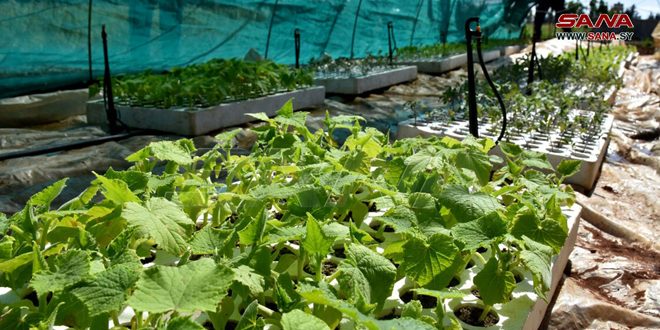Sanad Youth Development Foundation, in partnership with the Food and Agriculture Organization of the United Nations “FAO”, seeks to raise the capabilities of youth and women in the countryside of Deir Ezzor through the “Nabata” project, which aims to support pioneering agricultural projects, both plant and animal, in the governorate.
Samer Al-Aswad, the project manager, stated in this respect: “The project that was launched in Deir Ezzor governorate with the aim of developing and improving the agricultural sector, relying on the efforts of interested youth, has now started in the stage of generating ideas before moving on to preparing and studying work plans, leading to financing the best projects to be implemented on the land. In fact, citizens are beginning to touch the impact of the project on the individual and the agricultural sector as a whole.”
The criteria for registration in the project, for males and females, include the age, which should be between 18 and 35. The residency should be within the villages and towns of the governorate. The applicant should have previous experience in the agricultural sector, such as being a land owner, a farmer, a breeder, a student at a college of agriculture, a graduate of an agricultural school, or from a family of farmers or educators, so that the income of the beneficiary family depends mainly on agriculture or raising livestock, including young people and women working in small agricultural projects.
The applicants should not have obtained previous funding to launch their projects or rebuild or develop their projects from the United Nations or technical assistance projects from international organizations during the past 12 months. The first phase of the project includes brainstorming workshops and attracting 100 participants to train them to study the area and its problems, know the available resources, and generate pioneering visions that stem from the needs of their areas that are applicable on the ground so as to contribute to the development of the agricultural work environment in the countryside of Deir Ezzor.
As for the second phase, it includes business development training, where 40 young men and women will be selected from the participants in the first phase to receive training on designing business plans and financial studies for their projects, with full support for designing their own project ideas, moving to the third phase, which includes selecting a group of individual or group projects.The second stage includes the implementation according to specific criteria.
NR

